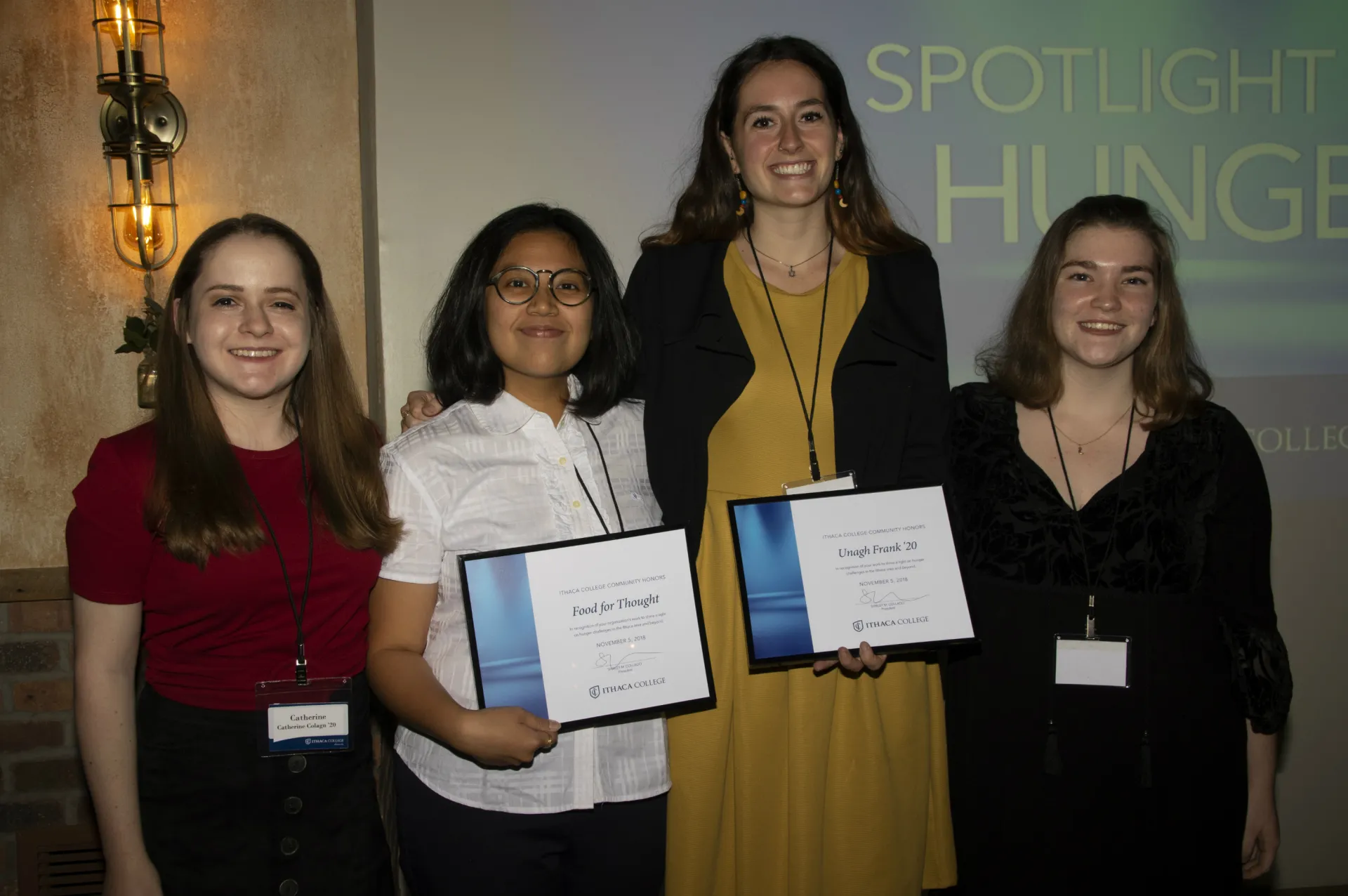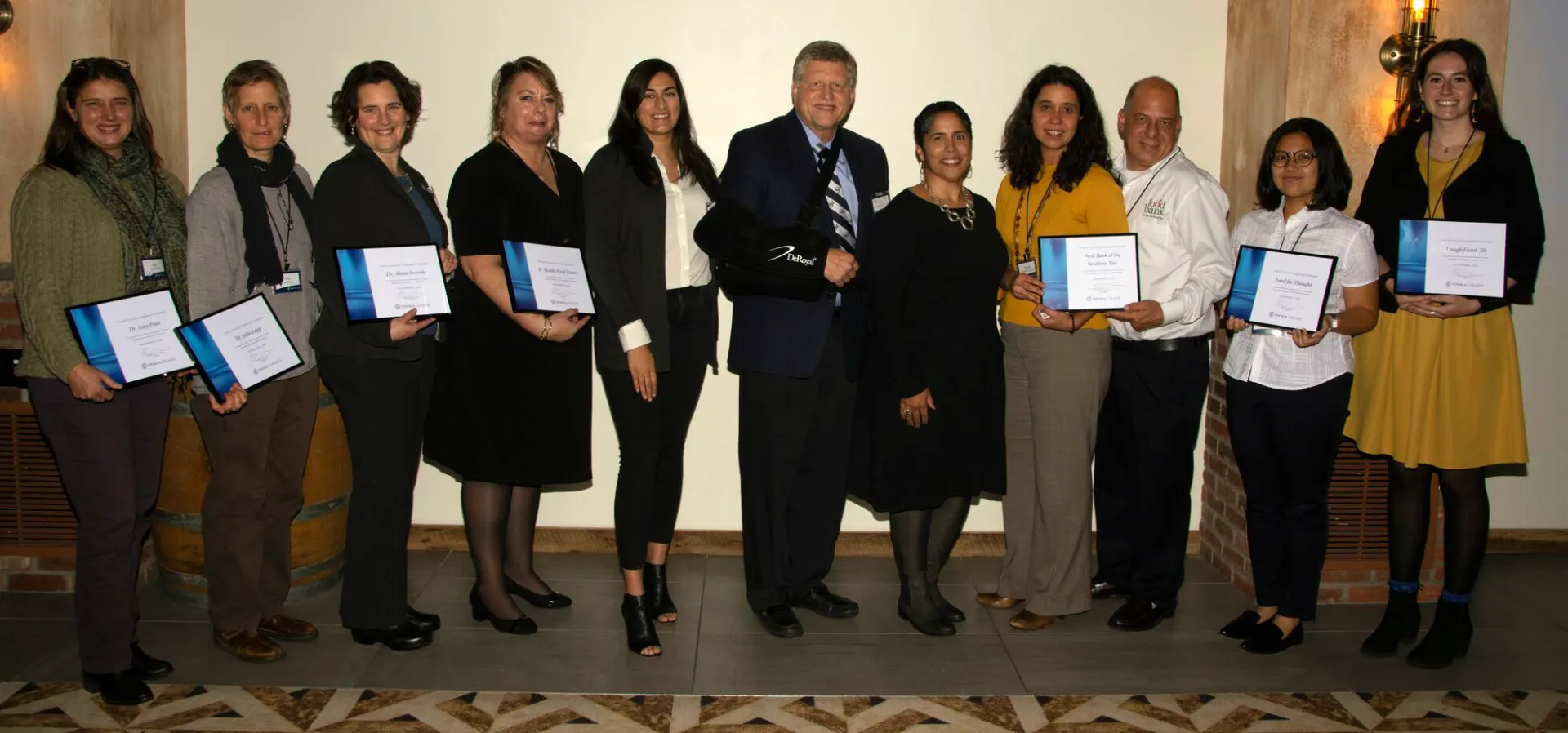The United States is often seen as a land of abundance and opportunity, yet in 2017, 40 million Americans reported facing food insecurity. And Ithaca is not immune. This problem affects people in our own community, and even on the Ithaca College campus.
A problem that exists at all levels requires solutions at all levels, so on Nov. 5, IC celebrated anti-hunger advocates and researchers who work on campus, in the Ithaca community and even across the region and academia. “The Community Honors: Spotlight on Hunger” event was held at Coltivare restaurant in downtown Ithaca.
At the event, President Shirley M. Collado wished a “happy big 65th birthday” to emcee Jerry Dietz ’75, a longtime soldier in the fight against hunger, and he thanked her and IC for creating the event. He praised IC and the honorees for their perseverance, education, collaboration and “plain old boots-on-the-ground volunteerism.”
“They are helping to mitigate hunger in all of its forms, wherever it might be found. In each of them beats the heart of a cathedral builder,” he said, comparing them to the laborers from all walks of life who dedicated their lives to building massive, ornate cathedrals, knowing they would never see the finished product. “They believed in it so much that their belief became contagious.”
This was certainly true for featured speaker Emily Francis ’15, who “caught the bug” as a student on an Alternative Spring Break trip to Washington, D.C.’s Capital Area Food Bank.
Chopping onions, packing grocery bags, loading trucks — the work was grueling, but she loved every minute of it.
“To Don Austin and IC’s Office of Student Engagement, thank you so much for that experience,” she said. “It is absolutely the reason that I now work at that same food bank. I really want to be part of the solution to alleviating hunger, and I have the best job there is.”
That job is as the foundation relations associate and grant writer for the largest anti-hunger organization in the D.C. region. Last year, the organization served 32 million healthy meals to half a million people.
“All of the work I did with IC’s Mock Trial Club and all of the time writing stories in the Park School really prepared me for what I do now,” she said.
“We are seeing a huge increase in working families. Even two working parents, they still can’t afford to feed their children,” she said. “Hunger is always closer to home than we think.”
That is certainly true in Ithaca and the Southern Tier, as well as on campus.

